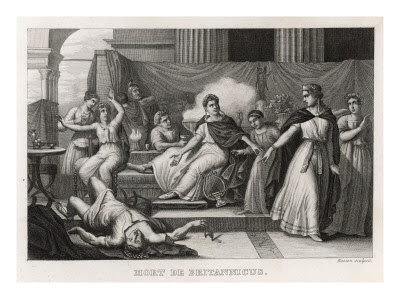It’s strange how a belief in self-ownership and not harming other people is seen by some as the height of callousness.
Here’s how it goes: libertarian principles state that it is wrong to take other people’s stuff or harm them. As such, theft is by definition wrong, and this does not change, if the intention of the perpetrator is to do good to someone else, e.g., by dropping off my CD collection at the local charity shop after plundering my home.
This being the case, it therefore follows, according to my adversaries, that I must also be content to see children starve, if the only way to save them involves stealing food.
I do not know how many thefts and robberies have been committed in this country this year, and I wonder how many were committed in order to feed starving children? (Somewhat less than those committed to feed a crack addiction, I’d wager). Nevertheless, what callousness to hold theft to be wrong!
But why do I hold to such a barbaric principle, even though I’d actually rather the starving child survived? I shall look more closely at the meaning of saying a particular category of human action, such as theft, is wrong.
I have written on a couple of occasions recently on the necessity to separate the law from morality, to distinguish between vice and crime, to limit the law to the defense of property rights ,defined, of course, to encompass the physical person, and tempered by a measure of equity(one would hope!).
Lawfulness and moral rectitude are not synonyms. Morality, although subject to a broad agreement of definition in society, is essentially subjective, but a property rights-based system for determining law is based on objective criteria.
Where categories overlap, we see acts that are both lawful and moral, as well as acts that are both unlawful and immoral. Where they part company we see immoral acts that are nonetheless lawful and also unlawful acts that are nonetheless moral, at least arguably moral from some subjective viewpoints.
A moral dilemma asks; what is the most moral path to choose in a given situation. This is a question one can ask oneself. Very different is the question; what does the law say?
Let us consider this example:
Smith has decided to seek food for a starving child. He sees this as a moral duty.
He approaches Jones, who he believes has food, to ask for his assistance. If he asks and Jones agrees, no lines have been crossed from moral and lawful behaviour.
Jones is now presented with a moral issue himself, that which animates Smith (plus an additional question regarding Smith’s trustworthiness!). He may consent or refuse to help. Whatever food he has, he is at liberty to hand over, and this means necessarily that he is at liberty not to hand it over. That is the position with regard to the law.
Now, should Jones refuse to help, Smith is faced with a dilemma: Should he continue his moral quest and force Jones to comply, in other words rob Jones of the food? The law is clear. To force Jones will break the law, and Jones can resist such violence with violence of his own and do so lawfully, if not also morally. The decision rests with Smith, who must be prepared to face any consequences of law for his actions.
Now the reason I have examined this question is because of what strawman versions of the libertarian position allege it to be, ergo: it’s okay to shoot starving children if they press too closely on the barbed wire surrounding your compound.
Also there is the further fear that a libertarian society would collapse into banditry, once the state stopped redistributing. What is being alleged is that such situations are more likely to arise if the state does not take pre-emptive measures to confiscate the food from Jones – and tell Smith to keep out of the matter, for let us remember that the state would not, as a rule, absolve an act of aggression from Smith.
This allegation is based on a belief that voluntary charity would not be enough to prevent the child from starving, that coercive redistribution is necessary to prevent hunger. Certain historical measures, such as the NHS and social security in the USA are cited in defence of the belief, to which I respond with other examples, friendly societies and the hospitals of London, some of which are many hundreds of years old.
But this, in itself, has nothing really to do with the question of morality, law and property rights addressed above. Suddenly we are switching into economics and a claim is being made for broad state plunder powers for the utilitarian ‘general good’.
The libertarian position is well staked out, synonymous with old school, no-buts liberalism, and it refutes the notion that the state is the most efficient means to deliver goods and services. It asserts that rather it is free trade and free markets that bring greater benefits than state management and interference, and that on utilitarian grounds as much as any other, the government should laissez faire laissez passer.













